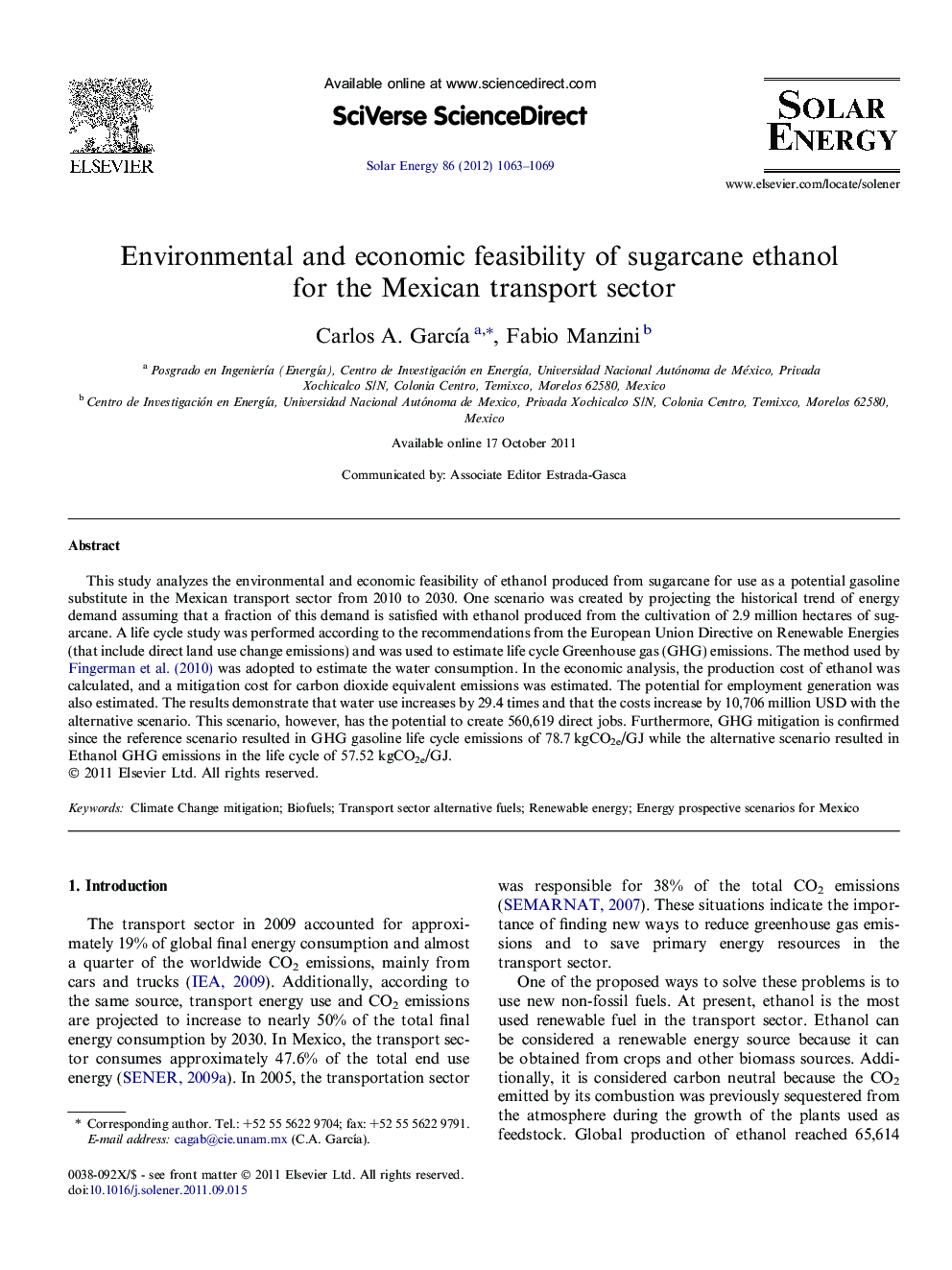| کد مقاله | کد نشریه | سال انتشار | مقاله انگلیسی | نسخه تمام متن |
|---|---|---|---|---|
| 1551218 | 998119 | 2012 | 7 صفحه PDF | دانلود رایگان |

This study analyzes the environmental and economic feasibility of ethanol produced from sugarcane for use as a potential gasoline substitute in the Mexican transport sector from 2010 to 2030. One scenario was created by projecting the historical trend of energy demand assuming that a fraction of this demand is satisfied with ethanol produced from the cultivation of 2.9 million hectares of sugarcane. A life cycle study was performed according to the recommendations from the European Union Directive on Renewable Energies (that include direct land use change emissions) and was used to estimate life cycle Greenhouse gas (GHG) emissions. The method used by Fingerman et al. (2010) was adopted to estimate the water consumption. In the economic analysis, the production cost of ethanol was calculated, and a mitigation cost for carbon dioxide equivalent emissions was estimated. The potential for employment generation was also estimated. The results demonstrate that water use increases by 29.4 times and that the costs increase by 10,706 million USD with the alternative scenario. This scenario, however, has the potential to create 560,619 direct jobs. Furthermore, GHG mitigation is confirmed since the reference scenario resulted in GHG gasoline life cycle emissions of 78.7 kgCO2e/GJ while the alternative scenario resulted in Ethanol GHG emissions in the life cycle of 57.52 kgCO2e/GJ.
► Mexico might use extra 2.9 M hectares of sugarcane crops for ethanol production.
► Environmental feasibility was determined by counting sugarcane life cycle GHG emissions.
► Economic feasibility was determined by calculating ethanol’s production cost.
► CO2 Mitigation cost varied from 66 to 162 USD/tCO2e depending on previous land use.
► A social benefit may obtained from ethanol production by creating 560,619 new jobs.
Journal: Solar Energy - Volume 86, Issue 4, April 2012, Pages 1063–1069